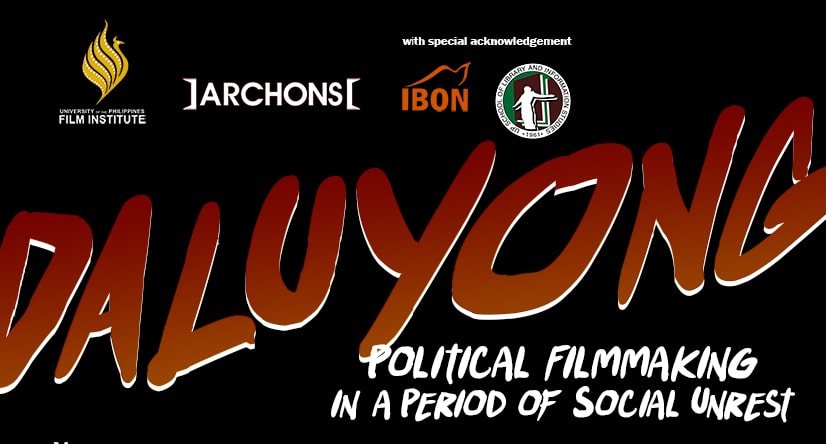
In the 1980s, political films made by alternative film groups and filmmakers arose as exposition of issues and events censored by the then Marcos-controlled mainstream press. Political filmmaking was their counter-action against the organized and massive pro-establishment Marcos propaganda (N. Tiongson, The Politics of Culture, 1984). These key works represent an alternative cinema that was clearly a partisan response of filmmakers engaged in seeking societal changes.
Clearly, these political filmmakers consciously used the film as medium, undeniably, for propaganda-education and contributed to the people’s protest movement that brought about the downfall of the Marcos dictatorship. More than this, these collective efforts aimed to document significant events, if not an entirety, of the Filipino people’s socio-political history countering the Marcos myth and fantasy of greatness (including the so-called Martial Law era as “Golden Age” of Philippine history mouthed nowadays).
Films for screening
Sabangan (originally in Super 8, transferred to U-matic, digitized for access)
27 mins.
Sabangan (1983), a documentary that won 2nd place in the Experimental Cinema of the Philippines (ECP) best documentary category, is about the plight of the Remontados of Tanay in Rizal and the proposed Kaliwa-Kanan Dam, a World Bank-funded project in support of Imelda Marcos, City of Man. The film was made by Jose Cuaresma, Bedette Libres, Freddie Espiritu, Robert Gruta, and L. Fischer.
Arrogance of Power (originally in Super 8, digitized for access)
38 mins.
Arrogance of Power (1983) by AsiaVisions is a short documentary that essays the fascist might of the Marcos regime and how militarization and human rights violations were Institutionalized in Philippine political life.
Daluyong (originally in Super 8, available copy in Betamax tape, digitized for access)
30 mins.
Daluyong (1984) is a documentary, by Joey Clemente and Nil Buan, Jr., on the historic Lakbayan o Lakad ng Bayan para sa Kalayaan held March 1984. It tackles the dissatisfaction of the Filipino people against the Marcos regime.
Lakbayan ’84 (available access copy in Betamax tape, digitized for access)
85 mins.
Lakbayan ’84 (1984) is an AsiaVisions video documentation of Lakbayan o Lakad ng Bayan para sa Kalayaan held from March 1 to March 7, 1984. Lakbayan was the first of its kind, a long protest march of peasants, students, professionals, church people, and cultural workers from Concepcion, Tarlac, north of Luzon, and San Pablo City, Laguna, south of Luzon, to Luneta Grandstand. It called for a boycott of the then-upcoming May 14, 1984 Batasang Pambasa elections believed to be rigged by the Marcoses.
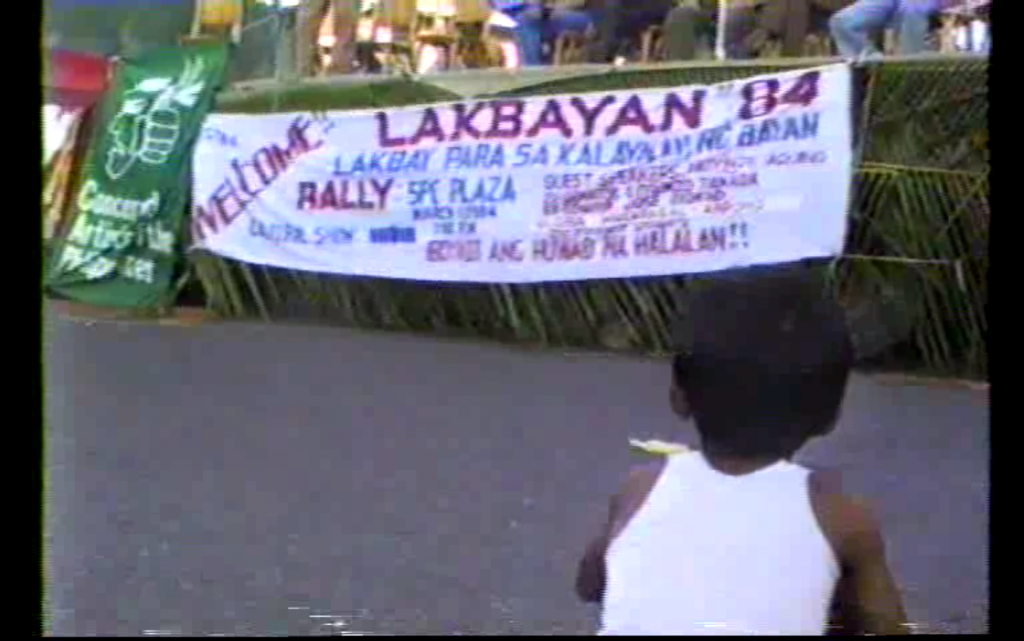
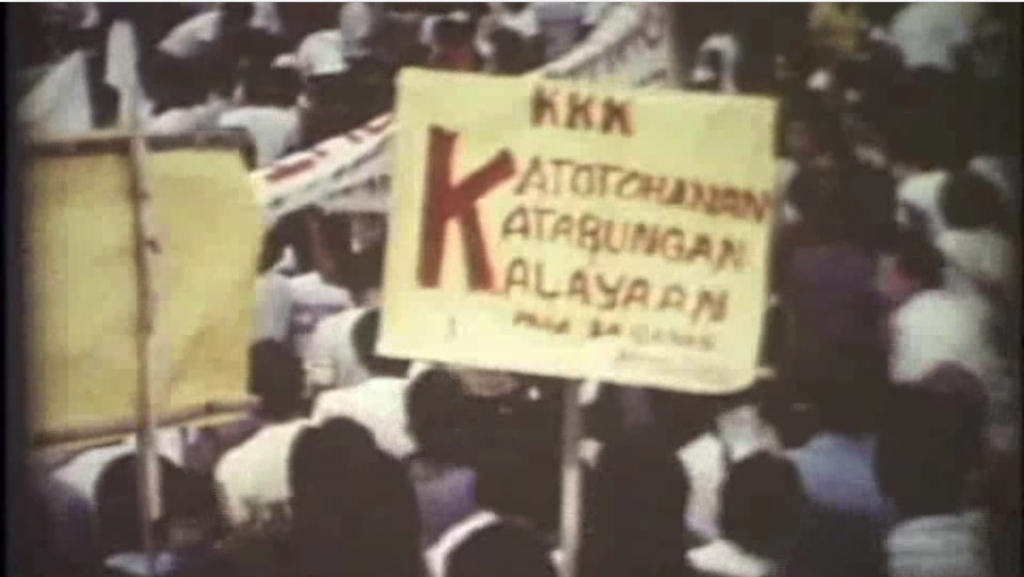
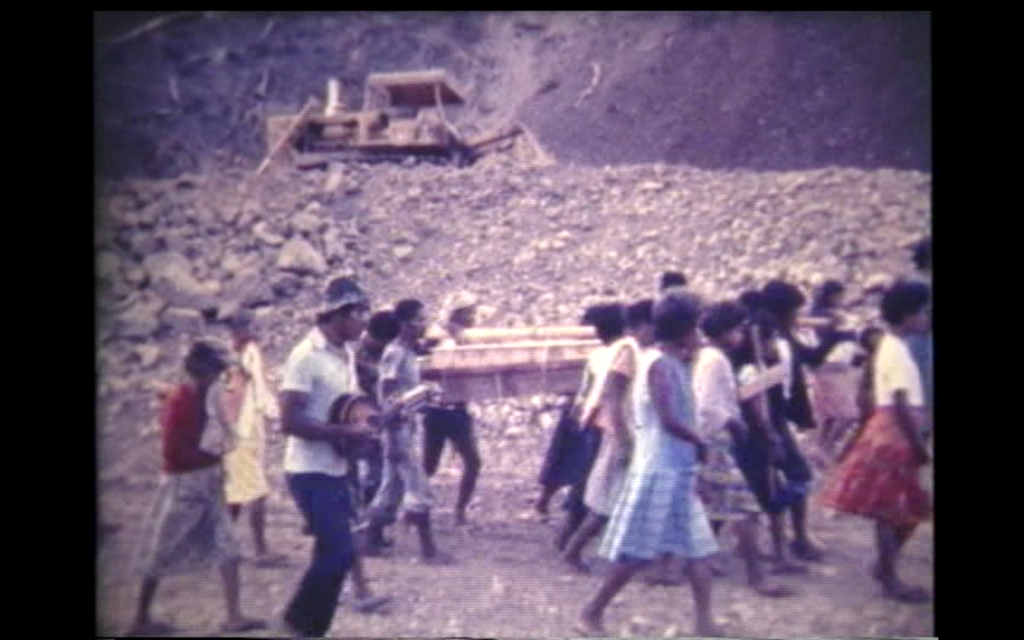
Schedule of forum and film screenings with Q&A:
September 14, Friday
1:00 -2:30pm
Sabangan
Q&A: Jose Cuaresma, Bedette Libres, filmmakers
3:00 -4:30pm
Arrogance of Power
Q&A: Maloy Tiongson, widow of Lito Tiongson, one of the founders of AsiaVisions
September 15, Saturday
11:00am-12:00nn
Daluyong
Q&A: Joey Clemente, filmmaker
1:00 -2:30pm
Forum
Political filmmaking in a period of social unrest:
Political films in the 1980s under the Marcos regime
Speaker: Rose Roque, assistant professor, Department of Arts and Communication, UP Manila
With special screening of Beyond the Mainstream to start the talk
3:00 -5:0pm
Lakbayan ’84
Q&A: Jose Cuaresma, one of the founding members of AsiaVisions and part of the crew who covered Lakbayan in March 1984
Additional screening:
September 19, Wednesday
4:30-6:30pm
Edjop (documentary on Edgar Jopson by Alternative Horizons/AlterHorizons)
Organized by the UP Film Institute with UP Archons
Special acknowledgement to IBON Foundation, UP School of Library and Information Studies (UP SLIS), and Society of Filipino Archivists for Film (SOFIA)
*Daluyong: Political Filmmaking in a Period of Social Unrest is curated by Rose Roque, UP Manila Philippine Arts assistant professor.
_____________________________________________________
This concept paper is prepared by Ms Rosemarie Roque
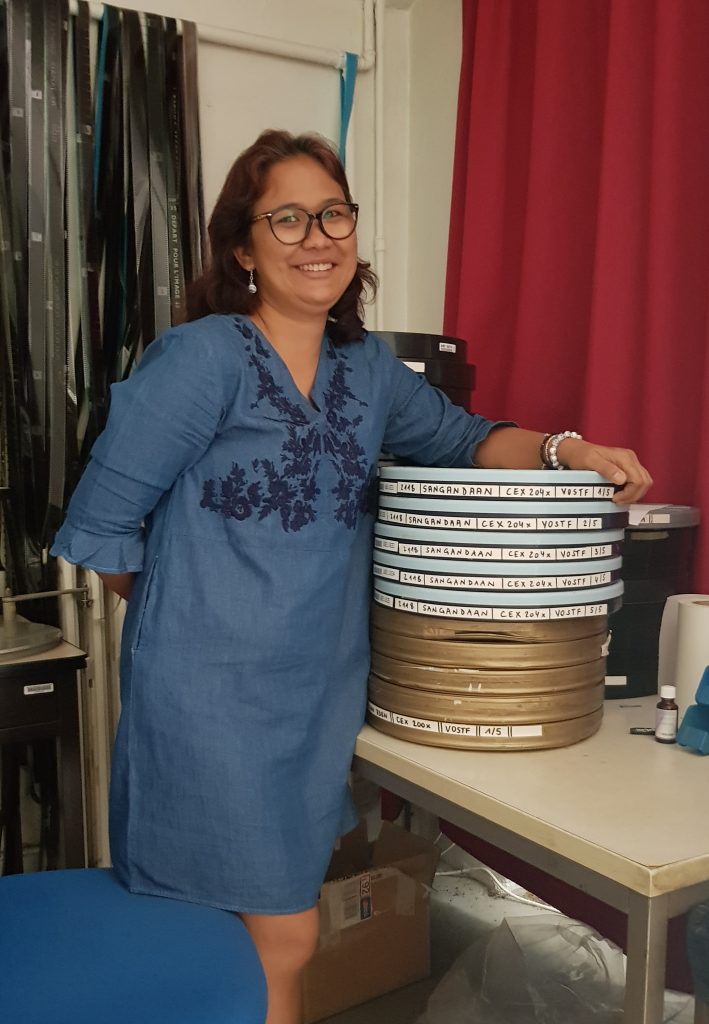 Ms Roque is an individual associate member of the South-East Asia Pacific Audio-Visual Archives Association (SEAPAVAA). She is also a member of the Cinema and Moving Image Research Assembly (CAMIRA), an international scholars’ association composed of critics, academics, curators and other practitioners in the domain of cinema and moving image arts. She is also an active member of the Society of Filipino Archivists for Film (SOFIA). She currently serves as its representative to the National Committee on Archives (NCA) of the National Commission for Culture and the Arts (NCCA) (2017-2019), where she holds the position of assistant secretary of the Executive Committee.
Ms Roque is an individual associate member of the South-East Asia Pacific Audio-Visual Archives Association (SEAPAVAA). She is also a member of the Cinema and Moving Image Research Assembly (CAMIRA), an international scholars’ association composed of critics, academics, curators and other practitioners in the domain of cinema and moving image arts. She is also an active member of the Society of Filipino Archivists for Film (SOFIA). She currently serves as its representative to the National Committee on Archives (NCA) of the National Commission for Culture and the Arts (NCCA) (2017-2019), where she holds the position of assistant secretary of the Executive Committee.
She earned her BA Communication Research and MA Araling Pilipino degrees from UP Diliman. She is currently enrolled in PhD Media Studies under the College of Mass Communication, also in UP Diliman.